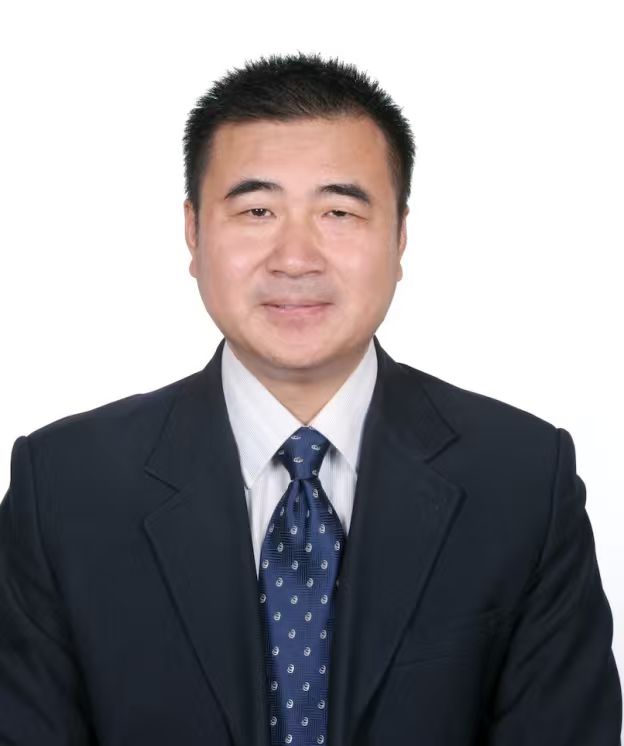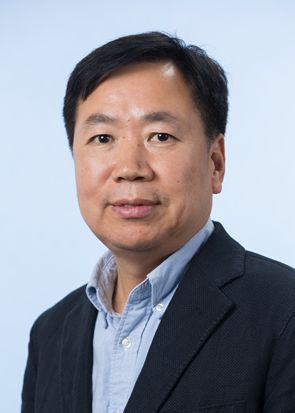
Plenary Talk I
The Human Brain Project: Milestones from a Pioneering Vision to Lasting Impact
Alois Christian Knoll, Technical University of Munich (TUM)
9:15-10:00, October 17 (Friday), Ballroom 1
Abstract:
The Human Brain Project was a ten-year flagship initiative launched by the European Union in 2013. As the first project of its kind, it sparked worldwide attention and interest. Its contributions to software and computing distinguish it from other brain research programmes that followed, providing valuable insights for the field of cyber-physical systems. This talk will highlight the project’s main contributions and the lessons learned from this unique, large-scale research effort. Our focus is on neurorobotics, recapitulating the development of the Neurorobotics Platform — an integrated toolset for robot simulation and learning. In particular, we demonstrate how its scalability in the cloud has enabled pioneering research on the collection of large-scale synthetic datasets. We also present NeRmo, our neurorobotic mouse robot, which complements the Neurorobotics Platform for real-world experiments. As neuromorphic computing is a vital technology for the deployment of cyber-physical systems in the real world, we also provide an overview of the project’s developments in this area. Finally, we discuss ongoing efforts and new projects aimed at continuing the work initiated under the Human Brain Project beyond its conclusion in 2023.
Biography:
Alois Christian Knoll is a German computer scientist and professor at the TUM School of Computation, Information and Technology (formerly TUM Department of Informatics) at the Technical University of Munich (TUM). He is head of the Chair of Robotics, Artificial Intelligence and Embedded Systems.
His research areas include cognitive sensor-based robots, multi-sensor data fusion and autonomous and embedded systems, with applications in the fields of automotive engineering, manufacturing, medicine and intelligent transport systems. He has published over 1,500 peer-reviewed scientific papers in these fields and served as an editor for international scientific journals and as a conference organiser, including as Chief Editor of the journal Frontiers in Neurorobotics.
He founded the IEEE's "Humanoids" conference series and chaired the Humanoids 2000 programme committee. In 2015, he was Programme Chair of the IEEE International Conference on Robotics and Intelligent Systems (IROS) in Hamburg, Germany. He also helped establish the IEEE Cyborgs and Bionic Systems (CBS) conference series, delivering the inaugural keynote address at CBS 2017. He was General Chair of CBS 2019 in Munich, Germany, and is a founding member of the IEEE Technical Committee for Cyborg & Bionic Systems.

Plenary Talk II
Embodied Intelligence with Large Models and Its Manufacturing Applications
Fuchun Sun, Tsinghua University
8:30-9:15, October 17 (Friday), Ballroom 1
Abstract:
Embodied Intelligence marks a pivotal evolution in AI, transforming machines from pre-programmed tools into autonomous agents that perceive, understand, and adapt to real-world environments. Its core capability lies in achieving "policy generalization" and "scene generalization" through continuous interaction, enabling robots to build a functional "world model" from integrated knowledge, memory, and experience. A key technical approach involves merging cloud-based large models for high-level reasoning with embodied small models for real-time control, forming a scalable and secure distributed architecture conducive to intelligent manufacturing. Humanoid robots, given their natural fit in human environments, serve as the ideal platform for advancing this field. Future progress will depend on advances in four areas: embodiment, world models, agent design, and evolutionary learning mechanisms.
Biography:
Dr. Fuchun Sun is a Tenured Professor in the Department of Computer Science and Technology at Tsinghua University, where he also serves as the Director of the Intelligent Robotics Center at the Institute of Artificial Intelligence and Deputy Director of the Committee of Tenured Professors. He is currently the Vice Chairman of the Chinese Association for Artificial Intelligence (CAAI) and an Executive Director of the Chinese Association for Automation (CAA). His research focuses on robotic perception, skill learning, cross-modal learning, and intelligent control.
Dr. Sun has led teams to win championships in the Autonomous Grasp Challenges at IROS in 2016 and 2019, and at ICRA in 2015 and 2024. He was elected IEEE Fellow and CAAI Fellow in 2019, and CAA Fellow in 2020. He is also a recipient of the Excellent Doctoral Dissertation Award of China (2000) by the Chinese Ministry of Education, the Choon-Gang Academic Award by Korea (2003), and was recognized as a Distinguished Young Scholar by the National Natural Science Foundation of China in 2006.
He has served as Editor-in-Chief of Cognitive Computation and Systems and AI and Autonomous Systems, and as an Associate Editor for IEEE Transactions on Fuzzy Systems.

Plenary Talk III
Rebuilding the Body: Soft Robotics and the Future of Bionic Organs
Arianna Menciassi, Scuola Superiore Sant’Anna (SSSA)
8:00-8:45, October 18, 2025 (Saturday), Ballroom 1
Abstract:
With the aging of the population, one of the most pressing challenges in medicine is addressing chronic diseases: diabetes, cardiovascular conditions, and urinary system disorders are affecting an increasing number of patients and represent a significant social and economic emergency.
Organ replacement or the restoration of compromised functions may offer viable solutions, but the technological hurdles involved in these advancements are substantial.
In this talk, the speaker will illustrate how soft robotics technologies can serve as a valuable resource for the development of bionic artificial organs, particularly for internal organs characterized by dynamic cavities—such as the bladder and the heart.
Starting from an initial case study focused on a hybrid implanted and ingestible system for diabetic patients, the presentation will explore the development of an artificial urinary system based on soft robotics technologies, highlighting future clinical challenges and opportunities.
Biography:
Arianna Menciassi (Fellow, IEEE) received the M.Sc. degree in physics from the University of Pisa, Pisa, Italy, in 1995, and the Ph.D. degree in bioengineering from Scuola Superiore Sant’Anna (SSSA), Pisa, Italy, in 1999. She is currently a Professor of bioengineering and biomedical robotics with SSSA, where she is the Team Leader of Surgical Robotics & Allied Technologies within The BioRobotics Institute. She served as Coordinator of the Ph.D. in BioRobotics in the period Feb. 2019-Feb. 2025, and in April 2019 she was appointed as the Vice-Rector of the SSSA for 6 years. Her research interests include surgical robotics, microrobotics for biomedical applications, biomechatronic artificial organs, and smart and soft solutions for biomedical devices.
She pays special attention to the combination of traditional robotics, targeted therapy, and wireless solutions for therapy (e.g., ultrasound- and magnetic-based solutions). She has served for many years as the Co-Chair of the IEEE Technical Committee on Surgical Robotics . Prof. Menciassi is an Editor for the IEEE Transactions of Robotics and APL Bioengineering and she is an Associate Editor for Soft Robotics. She received the Well-tech Award (Milan, Italy) for her researches on endoscopic capsules, and she was awarded by the Tuscany Region with the Gonfalone D’Argento, in 2007, as one of the best 10 young talents of the region. In 2020, she has been awarded with the KUKA Innovation Award, for her activities on robotic assisted focused ultrasound.

Plenary Talk IV
Human in the Loop Control Methods for Rehabilitation Robots
Zeng-Guang Hou, Institute of Automation, Chinese Academy of Sciences
8:45-9:30, October 18, 2025 (Saturday), Ballroom 1
Abstract:
We are facing the increasingly serious problem of population aging and the challenges of assessment, diagnosis, intervention and rehabilitation caused by the high incidence of stroke and Alzheimer's disease, as well as the shortage of therapists. Rehabilitation robots are expected to provide technical solutions to these problems and provide rehabilitation services for patients, families and therapists, but the promotion and application of rehabilitation robots also face many challenges. For example, efficient, reliable and safe intelligent interaction and intelligent control are difficulties hindering development and applications. Considering the acquisition and processing of multimodal biological signals, brain-computer interface, intervention control and rehabilitation, this talk explores the opportunities in related fields, as well as thoughts and prospects on the intelligent development of rehabilitation robots in the future.
Biography:
Zeng-Guang Hou is a Professor and Deputy Director of the State Key Laboratory of Management and Control for Complex Systems, Institute of Automation, Chinese Academy of Sciences (CAS). He is a VP of Chinese Association of Automation (CAA), VP of the Asia Pacific Neural Network Society (APNNS). Dr. Hou is a CAA/ IEEE Fellow. He also serves as an AE of IEEE Transactions on Cybernetics, IEEE Transactions on Cognitive and Developmental Systems, and an Editorial Board Member of Neural Networks. Dr. Hou was a recipient of IEEE Transactions on Neural Networks Outstanding Paper Award in 2013, and the National Natural Science Award of China in 2017, the Outstanding Achievement Award of Asia Pacific Neural Network Society (APNNS) in 2017, and the Dennis Gabor Award of International Neural Network Society (INNS) in 2023.